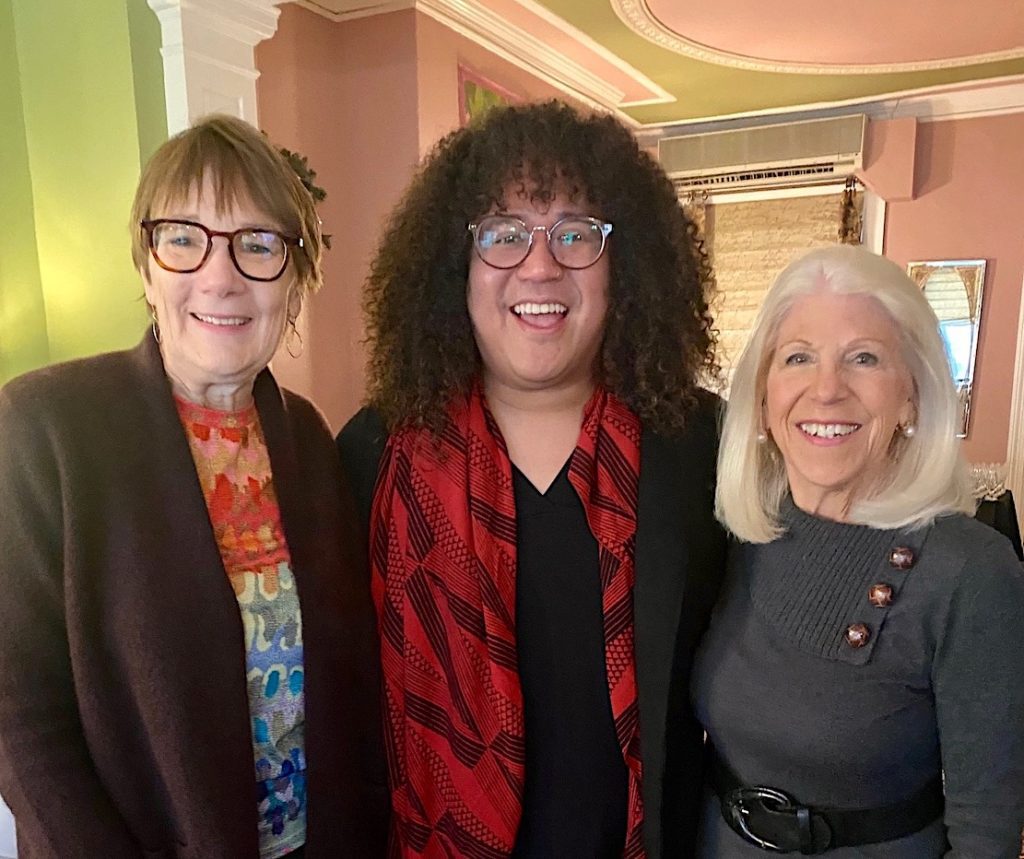A Multicultural Voice at Choral Arts
By • December 19, 2022 One Comment 1891

“I’d like to start off with a song, if that’s okay,” said Jace Kaholokula Saplan. Delighted by the idea, the attendees at The Georgetowner’s Dec. 15 Cultural Leadership Breakfast were treated to a sample of Hawaiian-language chant (possibly the first time this has occurred at the Tabard Inn).
In their inaugural season as artistic director of the Choral Arts Society of Washington, Saplan grew up some 4,800 miles from D.C., in a town on Hilo reserved for Indigenous Hawaiians. Though Saplan’s forebears had experienced a Hawaii in which the Native language and traditions were “illegalized,” in that special community they were nurtured.
The Hawaiian word “kuleana” — which the group repeated aloud — means responsibility, Saplan explained. “Everyone has one.” Saplan’s grandmother, the family matriarch, declared at Saplan’s birth: “The responsibility of this child is to preserve this chant… and represent our community abroad.”
That Saplan has done, in recent years as artistic director of Nā Wai Chamber Choir, dedicated to the preservation, propagation and innovation of Hawaiian choral music. But Saplan also mastered and continues to advocate for a second tradition: “classical” — that is, European/Western — choral music.
Embodying these two traditions, Saplan is something of a walking, talking, singing, teaching, conducting beacon of multiculturalism. “I call myself a bridger,” Saplan said, offering the following precept (among others): “Bach has something to teach Liliuokalani [the last Hawaiian sovereign, a composer of vocal music] and Liliuokalani has something to teach Bach.”
One of Saplan’s goals as an artistic director is to “ensure that everyone is seen.” Bold, creative programming should lead people to say to themselves, “I want to be part of this conversation.” Saplan’s hope is that “they can see themselves within the chorus, they can see themselves as an artistic collaborator.” Keeping eyes and ears open, Saplan said, “I see everything as repertoire.”
A word that came up repeatedly was “recontextualization.” Some of the Christmas carols and hymns of “O Night Divine!” — Choral Arts’ 42nd annual holiday performances, Dec. 19 at 7 p.m. and Dec. 24 at 2 p.m. in the Kennedy Center Concert Hall — have been recontextualized with elements of other genres, including jazz and R&B.
When bringing in new elements, Saplan stated, it’s important to ask: “What is your responsibility in telling this story?” and “Who are the stakeholders?”
Saplan’s thinking about the role of choral music in society was partly inspired, if indirectly, by the Choral Arts Society of Washington. While earning a doctor of musical arts degree in choral conducting at the University of Miami’s Frost School of Music, Saplan took a course called “Choir and Community.” The teacher, the late Karen Kennedy, one of Saplan’s mentors, spent two weeks discussing conductor Norman Scribner, who founded Choral Arts in 1965.
Education is a primary concern of Saplan, director of choral activities at Arizona State University in Tempe, where they are associate professor of music learning and teaching and of choral conducting. Based on interaction with “my Generation Z mentors” — meaning undergraduate students — Saplan mentioned the need to convey to the younger crowd how the popular music of today is part of a “lineage” extending from classical composers such as Vivaldi and Mozart.
Due to the “dissonance between what happens in the concert hall and what happen in the AirPods,” in Saplan’s words, it is essential to provide “access points to tradition.”
Responding to a question about how to get even younger people — such as the questioner’s grandchildren — interested in choral and classical music, Saplan emphasized “active participation” and linking the music to “human experience.” At one point, teaching Hawaiian children who “do not see their lives in Mozart,” Saplan found that talking about “Mozart’s access to water” — a topic close to home in the Aloha State — worked wonders.


The death of the Choral Arts Society